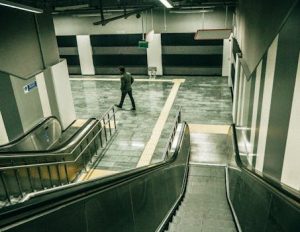Problem-Solving Court Models for Complex Social Challenges
Solving complex social challenges is no easy feat. Traditional court systems often struggle to address the underlying issues that contribute to these challenges, resulting in high recidivism rates and a cycle of problems that seem never-ending. However, there is hope in the form of problem-solving court models. These innovative and specialized courts aim to tackle the root causes of social challenges and provide individuals with the support they need to turn their lives around. In this article, we will explore the different types of problem-solving court models and how they are revolutionizing the way we approach complex social issues.
What Are Problem-Solving Court Models?
Problem-solving court models are courts that go beyond the traditional model of determining guilt and imposing a sentence. These specialized courts focus on finding effective and sustainable solutions to complex social challenges that individuals may be facing. The goal is to address the underlying issues that contribute to these challenges, rather than simply punishing the individual for their actions.
These courts typically involve a team-based approach, with judges, prosecutors, defense attorneys, and a range of other professionals collaborating to find the best course of action for each individual case. This multidisciplinary approach allows for a more holistic and tailored approach to addressing complex social challenges.
Types of Problem-Solving Court Models
Drug Courts
One of the most well-known problem-solving court models is drug courts. These courts were established in the 1990s as a response to the rising number of individuals with substance abuse issues entering the criminal justice system. The goal of drug courts is to address the underlying addiction issues that contribute to criminal behavior, rather than simply punishing individuals for their drug usage.
Drug courts typically involve regular drug testing, intensive treatment programs, and close monitoring by a judge. Individuals are often required to attend support groups, therapy, and other programs as part of their treatment plan. Research has shown that drug courts have been effective in reducing recidivism rates and substance abuse among participants.
Mental Health Courts
Mental health courts are another type of problem-solving court model that focuses on individuals with mental health issues. These courts aim to connect individuals with community-based services and support systems, rather than sending them to jail for their offenses.
Mental health courts often involve a combination of treatment programs, therapy, and court supervision. The goal is to address the underlying mental health issues that contribute to criminal behavior and reduce the likelihood of reoffending. Studies have shown that mental health courts can significantly reduce recidivism rates and promote better long-term outcomes for individuals with mental health issues.
Homeless Courts
Homelessness is a complex social challenge that is often intertwined with the criminal justice system. Homeless courts are specialized courts that aim to break this cycle by providing individuals experiencing homelessness with the resources they need to get back on their feet.
These courts often involve connecting individuals with housing programs, job training, and other support services. The goal is to address the underlying issues that contribute to homelessness, such as mental illness, substance abuse, and lack of job opportunities. Homeless courts have shown promising results in reducing recidivism rates and promoting stable housing for participants.
The Benefits of Problem-Solving Court Models
Problem-solving court models have several benefits compared to traditional court systems. Firstly, they focus on addressing the root causes of criminal behavior, which can lead to better long-term outcomes for individuals and society. By providing individuals with the support and resources they need to overcome complex social challenges, these courts can reduce recidivism rates and promote a safer community.
Additionally, problem-solving court models can save taxpayer dollars. For example, drug courts have been shown to be more cost-effective than traditional courts, as individuals are less likely to reoffend and end up back in the criminal justice system. Moreover, with a focus on rehabilitation and treatment rather than punishment, these courts can help break the cycle of poverty and incarceration for individuals.
In Conclusion
Problem-solving court models are a game-changer for addressing complex social challenges. By shifting the focus from punishment to rehabilitation, these courts have shown promising results in reducing recidivism rates and promoting better outcomes for individuals. As our society continues to grapple with issues such as drug addiction, mental health, and homelessness, it is essential to recognize the potential of problem-solving court models and continue investing in their expansion and improvement.











